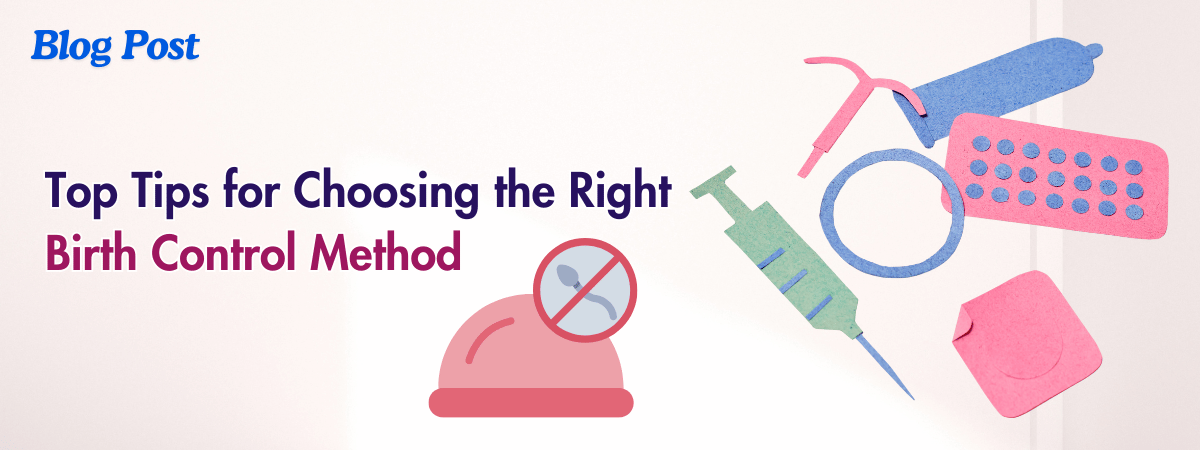
Understanding Different Birth Control Methods
Choosing the right contraceptive method is like finding the perfect tool for a job. Each option has distinct benefits and considerations. For short-term prevention, barrier methods like condoms effectively prevent pregnancy and protect against STIs, acting as a shield between sperm and egg. But what if you’re looking for long-term solutions?
Long-acting reversible contraceptives (LARCs) such as IUDs and implants are like planting a tree that thrives with minimal care, offering continuous protection with over 99% effectiveness. Prefer flexibility?
Consider birth control pills, patches, or rings, which require regular attention but fit seamlessly into daily life.
Health considerations are critical. If you have a history of blood clots or high blood pressure, steer clear of estrogen-based methods. Instead, progestin-only or non-hormonal options might be safer. How do these methods align with your lifestyle and health?
Explore more in a detailed guide on key steps in reproductive health.
The ideal contraceptive method aligns with your lifestyle, health, and future plans. Consult a healthcare provider to tailor the choice to your needs.
Hormonal Methods
How do hormonal methods work?
Like a well-tuned orchestra, they harmonize our body’s natural rhythms. Methods such as birth control pills, patches, and rings release hormones to prevent ovulation. Which should you choose?
If daily pills feel overwhelming, a patch might be your symphony. Our choices hinge on lifestyle and health needs.
Consider this: expert guidance can be critical in selecting the right method. For those with a history of blood clots, progestin-only options like mini-pills or implants are safer. Conversely, patches and rings offer convenience for those with regular schedules.
Let’s explore some hormonal methods:
- Birth Control Pills: Require daily commitment but are highly effective when used correctly.
- Contraceptive Patches: Changed weekly, ideal for those preferring less frequent maintenance.
- Vaginal Rings: Inserted monthly, offering a blend of convenience and efficacy.
While effective, these methods do not protect against sexually transmitted infections (STIs). Pairing them with barrier methods like condoms ensures complete protection. In the end, the choice reflects individual needs, balancing convenience and safety.
Barrier Methods
Barrier methods act as a protective shield, blocking sperm from reaching the egg, much like a castle’s moat deters invaders. Popular options include female condoms, diaphragms, and spermicides, each with unique advantages. Curious about their function?
Find more about their effectiveness and application. These methods are ideal for those seeking non-hormonal solutions.
Evaluating Effectiveness and Side Effects
Comparison of Effectiveness
In the area of contraceptive methods, effectiveness varies like the gears of a clock. Highly effective options, such as IUDs and implants, boast failure rates under 1%, acting as impregnable fortresses against pregnancy. On the contrary, methods like pills and patches, with about 9% failure rates, resemble sturdy fences. Which method aligns with your lifestyle and health?
Considering Lifestyle and Personal Preferences
Choosing the right birth control is like finding the perfect outfit; it must fit your lifestyle and preferences seamlessly. With numerous contraceptive methods available, how do you decide?
Let’s explore the options and considerations.
For short-term contraception, barrier methods like female condoms or diaphragms are akin to wearing a raincoat in a storm—they offer immediate protection but require consistent use. On the contrary, birth control pills and patches provide a continuous shield but demand daily attention.
Seeking long-term solutions? Long-acting reversible contraceptives (LARCs) such as IUDs or implants are like planting a tree; they need initial effort but yield years of benefit. These methods boast high effectiveness and minimal maintenance.
Consider your health and lifestyle. Those with certain health histories should choose progestin-only or non-hormonal methods. If daily tasks aren’t your strength, options like IUDs or implants might suit you best.
In the end, the ideal contraceptive aligns with your reproductive goals and personal comfort. Consulting experts, such as Dr. Sayali Gadre, can offer personalized guidance to steer these choices.
Flexibility and Convenience
Choosing the right contraceptive method is akin to selecting a wardrobe tailored to your lifestyle. Consider birth control pills and vaginal rings; they offer flexibility, seamlessly fitting into daily routines. Conversely, long-acting reversible contraceptives (LARCs) like IUDs embody the convenience of a “set it and forget it” approach, ideal for those who prioritize simplicity.
Book appointment with Dr Sayali Gadre
Ready to find the perfect birth control method tailored to your lifestyle?
Book now and take the initial step towards informed family planning.
